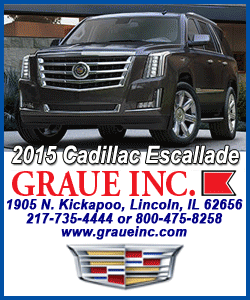|
 The specialty drug company has emerged as the fifth largest payer of
investment banker fees over the past three years thanks to its rapid
acquisition-driven and debt-financed expansion that has made it a
darling of investors. The specialty drug company has emerged as the fifth largest payer of
investment banker fees over the past three years thanks to its rapid
acquisition-driven and debt-financed expansion that has made it a
darling of investors.
But its business model, which has also relied on aggressive price
hikes for acquired drugs, has come under growing scrutiny because of
political backlash against high drug prices, dragging Valeant shares
down from record highs scaled in August.
The company said earlier this week it would now focus on buying back
shares and paying off debt after spending about $40 billion on some
150 acquisitions since 2008 only to see its shares plummet further
after a short-selling firm raised questions about its strategy and
accounting practices.

The firm's woes mean a likely loss of lucrative business for
JPMorgan Chase & Co, Goldman Sachs Group Inc and other major
investment banks.
Since 2012, only General Electric Co, Allergan Plc, AT&T Inc and
Dell Inc have paid more than Valeant in fees to Wall Street,
according to data from Freeman and Co, a consulting firm.
Valeant's investment banking fees totaled $500 million since 2012,
according to Freeman. JPMorgan and Goldman Sachs have been top
beneficiaries, pocketing $97 million and $84 million respectively in
the last three years.
Morgan Stanley , Deutsche Bank AG and RBC Capital Markets each
earned roughly $50 million, according to the data.
The handsome fee payments have come even though Valeant has closed a
number of its largest deals without hiring a mergers and
acquisitions adviser, including its largest acquisition, the $15.8
billion takeover of Salix Pharmaceuticals in April.

[to top of second column] |

In going alone in some deals, Valeant relied on the deal-making
expertise of its top executives. Its Chief Executive Michael
Pearson, previously led the pharmaceutical practice at McKinsey &
Co., and Chief Financial Officer Howard Schiller, who left the
company in June, was a top investment banker at Goldman Sachs.
Valeant still paid fees for the financing of the deals.
Valeant's capital raising, mostly in the form of debt, has been by
far the most lucrative source of deal-making fees, accounting for
nearly $450 million of the total, according to the data.
For Valeant, the legacy of those capital raises is more than $40
billion in debt, which currently exceeds its market capitalization
of around $39 billion.
Several other drug companies that have followed similar strategies
of aggressive acquisitions, cuts in research and development budgets
and price increases, have also come under pressure amid concerns
about tougher drug pricing scrutiny.

Several Valeant peers, including Endo International Plc,
Mallinckrodt Plc and Horizon Pharma Plc , have also seen their
shares fall, potentially limiting their ability to make acquisitions
in the future.
(Reporting by Carl O'Donnell; Editing by Greg Roumeliotis and Tomasz
Janowski)
[© 2015 Thomson Reuters. All rights
reserved.] Copyright 2015 Reuters. All rights reserved. This material may not be published,
broadcast, rewritten or redistributed. |